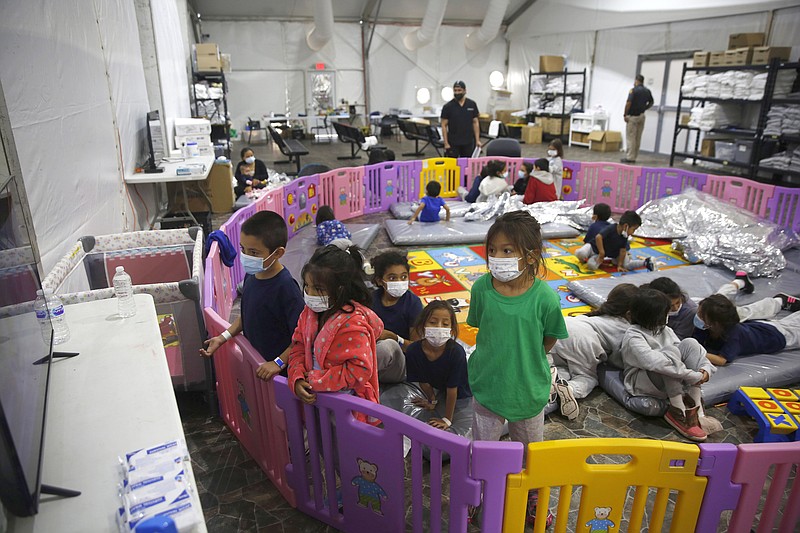Practically everything about the current presidential administration's policy concerning illegal immigrants and the country's Southern border we find reprehensible.
But saying the state will not pay for the education of school-age children who are illegally brought into the country is not a solution for those wrong-headed decisions.
However, that is what state Rep. Bruce Griffey, R-Paris, proposes with a bill he has filed for introduction in the Tennessee state legislature.
The bill asserts if a Tennessee public school (including charter schools) enrolls illegal immigrant students, then the state Department of Education will withhold per-pupil Basic Education Program (BEP) funds the district would normally receive for each student who fits the criteria. It further asserts that such students must not be counted in future BEP calculations for determining per-pupil amounts, and that any school district that enrolls such students will be solely responsible for the cost of their education.
We have been clear on our position about the illegal entry of individuals into the country, their covert movement by the administration to move them to the interior of the country, the lack of prosecution for their illegal status, and that we disagree with their receiving varying amounts of government assistance.
But to deny an education to children who are here not of their own accord - and evidently will be here as long as there is a lack of interest in turning them away - seems no better than the educational neglect shown slaves more than 150 years ago.
Surely, we've advanced beyond that level of humanity.
Griffey, saying in a news release that state residents "should not have to be paying hundreds of millions of dollars in expenses resulting in criminal acts to which the federal government is turning a blind eye," cited a 2017 Federation for American Immigration Reform report that said Tennessee spent about $383 million of nearly $4.8 billion in education outlays on illegal immigrant children in 2017.
In our minds, the "criminal acts" result in state residents "paying hundreds of millions of dollars," instead of the other way around. But we digress.
The amount Griffey cited, $383 million, is about 8% of $4.8 billion in 2017 K-12 education spending. But that same year, according to a state Department of Education, document, Hispanic children made up about 10% of public school students. Though not all Hispanic students are illegal immigrants, 8% of education funding doesn't seem off the mark unless you believe spending on illegal immigrant students should be zero.
To leave 6% or 8% or 10% of the state's students without an education seems unthinkable, and putting the onus on local school districts to make the decision seems cowardly.
But Griffey likely wrote his bill the way he did because he knows attempting to say the state would not pay to educate illegal immigrant children is a no-go.
The U.S. Supreme Court in 1982, after all, declared that "all children, regardless of immigration status, have a constitutional right to a free public education."
Griffey, elected in 2018 but not running for a third term in 2022, does not have a Senate sponsor for his bill. And if it is like the majority of the 29 bills he has sponsored during the 112th General Assembly, it is not going anywhere.
Among ones he sponsored in 2021 dealing with immigrants or refugees, one attempting to tax money transmissions sent from the state to locations outside the U.S. (as is often done by immigrants) was withdrawn; another imposing a $5 fee for certain similar money transactions and still another saying fees for certain similar money transmissions would fund the salaries of teachers and other education staff were referred to study committees; one requiring the state to refuse the resettlement of any refugees was withdrawn; and another requiring employers to use an e-verification program in hiring was defeated in subcommittee.
Only seven years ago, a bill by state Sen. Todd Gardenhire, R-Chattanooga, allowing children born in the U.S. of illegal immigrant parents to have in-state tuition at state colleges passed the legislature and was signed by Gov. Bill Haslam. A similar bill allowing children of illegal immigrants born elsewhere but brought to the country to have in-state tuition never has been able to pass both houses.
Certainly, a bill removing state money from the education of any children (illegal immigrant or not) would be a step backward. We hope it will go the way of Griffey's other immigrant-related measures.
